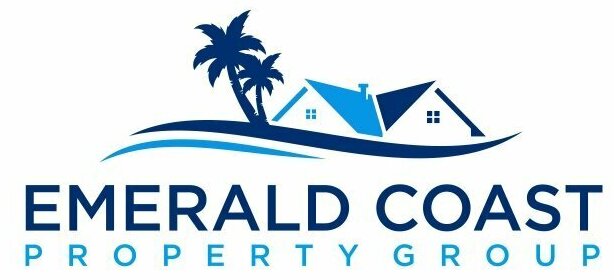
Facing foreclosure? Read this article for a few tips on what you can to do prevent and avoid foreclosure in pensacola.
Struggling to make mortgage payments on your Pensacola home to avoid foreclosure can be a difficult reality. And when you’ve fallen behind due to missed payments, it may feel like there’s no hope of catching up. Fortunately, if foreclosure is looming in the near future, you don’t have to stand by helplessly and watch it happen! There are options throughout Pensacola that offer assistance for homeowners facing this situation – so take heart knowing that reclaiming your property from debt isn’t impossible!
I’m Behind in My Mortgage Payments in Pensacola! 5 Things You Can Do To Help Your Situation
Foreclosure is a legal process that allows lenders to take possession of a property when a homeowner defaults on their mortgage payments. While it can be a devastating experience for homeowners facing foreclosure, there are several options available to avoid foreclosure. In this blog, we’ll explore some of the options homeowners can consider to avoid foreclosure and keep their homes.
Loan Modification:
A loan modification is a change in the terms of the mortgage agreement. This can include a reduction in the interest rate, extending the length of the loan, or changing the type of loan. A loan modification can help homeowners who are struggling to keep up with their mortgage payments by making their payments more affordable.
Refinance:
Refinancing involves replacing an existing mortgage with a new one. This can help homeowners get a lower interest rate, which can lower their monthly payments. However, refinancing requires the homeowner to have good credit and enough equity in the home.
Forbearance:
Forbearance is a temporary solution that allows homeowners to reduce or pause their mortgage payments for a set period. This can help homeowners who are experiencing a temporary financial hardship, such as a job loss or a medical emergency.
Short Sale:
A real estate short sale is a situation where a homeowner sells their property for less than the amount owed on their mortgage, with the lender’s approval. The goal of a short sale is to avoid foreclosure and allow the homeowner to walk away from the property with a reduced debt burden, while also allowing the lender to recoup some of their losses with the sale proceeds. Most lenders will often work with home owners seeking debt forgiveness to avoid foreclosure sales.
The short sale process typically begins with the homeowner contacting their lender to request a short sale. The lender will then review the homeowner’s financial situation and the property’s value to determine whether a short sale is a viable option.
If the lender approves the short sale, the homeowner will list the property for sale with a real estate agent and receive offers from potential buyers. The lender must approve any offer before the sale can proceed.
Once a buyer’s offer is accepted, the lender will negotiate with the buyer’s lender to determine the terms of the sale. This process can take several weeks or even months to complete.
If the short sale is approved, the homeowner will transfer ownership of the property to the buyer, and the lender will accept the proceeds of the sale as full satisfaction of the debt. The homeowner may still be responsible for paying any remaining debt, but the lender may agree to forgive the debt as part of the short sale agreement.
Overall, a real estate short sale can be a complex process that requires the cooperation of multiple parties, including the homeowner, the lender, the real estate agent, and the buyer. However, it can be a viable option for homeowners who are struggling to make their mortgage payments and want to avoid foreclosure.
Sell the Home:
If the homeowner is unable to keep up with their mortgage payments, selling the home may be the best option. This can help the homeowner avoid foreclosure and preserve their credit score. However, the homeowner may not be able to sell the home for enough money to pay off the mortgage.
Deed in Lieu of Foreclosure:
A deed in lieu of foreclosure is when the homeowner gives the lender the deed to the property instead of going through the foreclosure process. This can be a good option for homeowners who are unable to make their mortgage payments and want to avoid foreclosure. However, the homeowner will have to give up their home and may still owe money to the lender.
Bankruptcy:
Taking the step to file for bankruptcy can be a difficult and intimidating decision, but if you’re struggling with multiple lenders or high debt burdens it could provide much needed relief. You should consider seeking out professional financial guidance in order to understand how your unique circumstances will be treated by each lender as this process won’t solve every money problem – such as mortgage payments – so make sure you get the help that suits your needs best.
Reaffirm:
While making the most of current cards may seem advantageous in the short-term, affirmed loans can carry hidden costs. Depending on location, affirming a loan could result in extra expenses if you end up auctioning your property down the line. It’s important to weigh all possible risks carefully before committing!
Making Home Affordable (MFA):
If you’ve been struggling to make payments on your mortgage, MFA may be the answer for you. Fannie Mae and Freddie Mac are automatically eligible but other lenders can choose to join this program too! With MHA, it’s possible to lower monthly payment obligations or even interest rates – in some cases reducing principal balances of those home values that don’t match up with mortgages owing amounts. And if unemployment is affecting one’s ability to pay their loan they might find a sense of financial relief through suspending or minimizing these costs altogether by participating in government-backed programs such as these ones. However keep an eye out – taking advantage of all the benefits will require plenty paperwork so get ready do put forth effort into making it happen!
Negotiate with your bank:
Lots of lenders routinely offer some level of assistance. You have to work hard at it, but you might be able to get your interest rate reduced or a temporary reduction in your payment.
Most of the time, lenders will want to steer you to refinance your loan – but by the time you’re a few payments behind, you probably don’t qualify for a reduction in interest rate.
You have to work really hard to negotiate with a bank. Usually, it takes lots of calls and the patience of a saint to get through the bureaucracy. Never, ever act rude. Ask for help from everyone you speak with, but don’t sound desperate. Explain your situation, offer supporting documents, and reassure the bank that you want to live in your home for the long term.
If you’re in need of a temporary fix and want to stay in your home, most banks can be forgiving. Sometimes they’ll be willing to add a few months of payments back onto the primary balance of your loan. It’s all dollars and cents to them, so remind them that you need their help to give them a lot more money in the long run. If they have to sell your house at a foreclosure auction, they’ll take a huge loss.
That sounds obvious, but for some reason, bankers seem to forget it when saying no to someone in need of help.
Selling Pensacola Your House and Avoid Foreclosure
Are you struggling to keep up with your payments and need a helping hand? We understand difficult situations can arise suddenly, so don’t worry – we’re here for you. Our team works in Pensacola to empower homeowners by finding the best solutions that fit their unique challenges.
We buy houses in pre-foreclosure in any condition. Selling your home to a real estate investor with a cash offer could be a great option to avoid foreclosure in pensacola. We buy houses in Pensacola and the surrounding areas. Reach out today and let us know how we can assist on your path towards financial stability!
